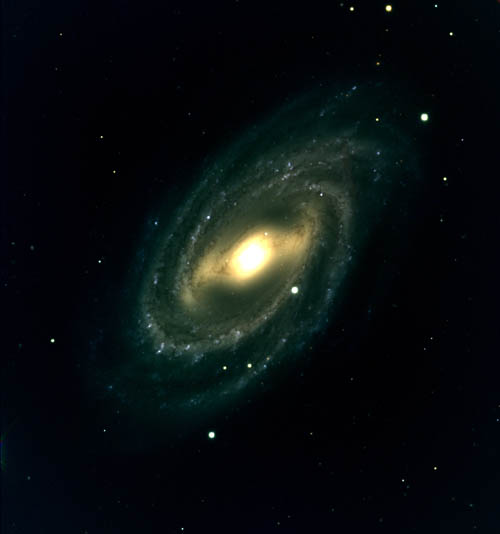Bachelor of Arts Degrees
B.A. in Astronomy

This program is intended to provide the combination of fundamental physics and general and advanced astronomy required for a career in astronomy or a related area. It also has the flexibility required by students who wish to pursue interdisciplinary studies or prepare for careers in teaching or other professions requiring a fundamental understanding of the physical sciences.
Early coursework provides a foundation in the areas of mechanics, thermodynamics, and electromagnetism. These topics help students understand the underlying rules that govern our modern world and the inner workings of technology that we use on a daily basis. Students then learn how to apply these fundamentals of physics to observations of the universe. They will learn about a range of topics, including planets, stars, galaxies, the beginning of the universe, and its ultimate fate; students will also analyze the evidence supporting our understanding of these topics.
This information applies to students with Fall 2016 catalog entry or later. The B.A. in astronomy requires 120 credit hours. This includes 40 hours of required astronomy and physics courses in the Department of Physics and Astronomy, 15 hours of mathematics, and at least 9 additional hours in the natural sciences and mathematics chosen with the advisor’s approval.
-
- Recommended introductory course: PHYS 1910 is strongly recommended.
- Basic astronomy sequence: The ASTR 2010, 2020 (6 hours) sequence is required.
- Advanced astronomy courses: The advanced courses ASTR 3880, 4810, 4820 and 4880 (13 hours) are required.
- Physics courses: Either the PHYS 2130 to 2140 (10 hours) sequence, or the PHYS 2070 and 2080 to 2100 (12 hours) sequence is required. In addition, PHYS 3310, PHYS 4920, PHYS 4950, and 6 additional hours of physics courses numbered 3000 or higher (11 hours) are required.
- Required mathematics courses: One of MATH 1830 or 1850, one of MATH 1840 or 1860, and both MATH 2850 and MATH 3610 (15 hours) are required.
- Other courses in related areas: At least 9 additional hours of approved electives, of which at least two courses must be major-level chosen from at least two of the departments: in biology, chemistry, or environmental sciences, approved by the student’s Adviser.
- Free electives: Elective hours total 6-8 credit hours.
These requirements can be completed over four years as shown in the sample plan of study, located in the UToledo Course Catalog.


